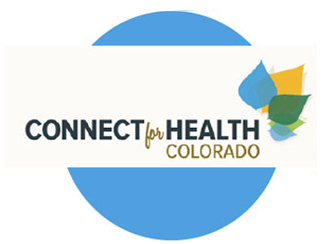As physical therapists, we are trained to engage in highly comprehensive physical examinations of each and every single patient that we work with. We evaluate their strength, their range of motion, the gait, their coordination levels, posture, symmetry, and a wide range of other details. This aids in the development of a treatment plan tailored to each patient we work with.

We almost have this innate form of hypervigilance with our patients.
While attention to detail is a highly productive and necessary trait in our field, we must remember that the patient is the main focus. While the anatomy of our patient is highly critical, there is one component to the treatment process that is even more important; that is, patient education.
Patient Education is the Core of Patient-Centric Healthcare
The healthcare industry started placing a high emphasis on patient-centric healthcare in the year of 2016. It has established – at that time – that patient education was a critical component to enhancing patient engagement.
As physical therapists, if we take the time to educate our patients, we are providing them with the details associated with their conditions and the treatments that they require. We also play a role in teaching them on the how to properly navigate today’s healthcare system.
These efforts will aid in empowering each of our patients. It also provides inspiration so that they are more likely to take ownership of their health and overall care.
Educating Patients Helps Them Make Highly Informed Decisions about Their Health
A patient should not be viewed as subpar. Instead, you should view them as a partner. In fact, they are when it comes to their healthcare team. To ensure success in collaboration in this unique partnership, we should take into account their individual preferences. If patients know more about their condition and the care that is required to help them overcome their issue, they will be able to successfully identify exactly what they need to do. This – in turn – helps them to make informed decisions on what they do or do not want to do in their healthcare regimen.
Patients must play an active role in their treatment plans; however, they are only able to achieve this if they obtain the proper knowledge. This will allow them to become an authoritative voice on their healthcare.

Patient Education Plays a Critical Role in Data Accumulation and Access
It is essential that patients learn how to navigate the healthcare system. In doing so, they are capable of seeing and maintaining their health-related data. Additionally, you and others on the care team are able to access the most up-to-date information about the patient. This helps everyone collaborate to the point where the patient is geared with the right treatments for the absolute best possible outcomes.
Patients that are educated by physical therapists and others that are part of their healthcare team are able to better access their information, monitor any type of conditions that they have, find errors and have them corrected, and contribute information to their overall treatment plan.
Patient Education Enhances Adherence
As a physical therapist, you know and understand the importance of treatment adherence. You also know and understand that not all of your patients are adherent to the instructions that you provide. It has been determined that when patients are properly educated, it has a high significance on their overall compliance with both medication and physical therapy with the various conditions and severities in which they deal.
If you educate your patient while you work with them, you will discover that they make the connection between the issues in which they suffer and the “why” for the treatment that you are prescribing.
If a patient is not educated and they do not realize why they have to do what they have to do in correlation to their illness and/or injury, they will generally display a lack of compliance. In turn, this leads to poor clinical-based outcomes. You will find that your patient has an increased need to be hospitalized, their quality of life lowers significantly, and they incur a higher level of expenses, in terms of their health.
According to studies, nearly half of all adults in the United States have some degree of limitation when it comes to health-based literacy. If your patient does not understand what is happening to them, they will not place any value on why they have to do what they have to do. If you help them make that connection, you will have a higher level of compliance.

Educational Tools
In addition to educating your patients face-to-face or through online video portals, it is also important that you provide them with reference tools.
Despite our best efforts to provide details to patients in our practices, most are unable to retain all that they are told. Simply give them reading material that they may take home and review on their own. This encourages active leveled engagement when it comes to the health initiatives that you have provided to them.
There are wide ranges of tools available at your disposal. You may use these to create reference materials for your patients. Examples include VisualDX and similar programs.
Patient education consists of both verbal education and written education. This will allow your patients to stay on top of things related to their health much better and in a much more productive manner.
Provider Satisfaction
When patients are spoken to and provided information about their condition and their treatment, it not only helps them reach a new level of satisfaction and compliance, but it also leads to higher levels of satisfaction with you and the other providers on their healthcare team.
If patients have a high level of satisfaction with you, they develop a trust with you. They will also develop a bond with you. Not only will they be more receptive to what it is that you have to say, but also to the instructions that you provide them.
Generally speaking, they will want to do what you tell them to do. They will also want to “please” you. While compliance is naturally pleasing to us as physical therapists, the motivation that the patient has will result in a better outcome for them.
Reduced Costs
Patients who are provided education by their physical therapists incur less costs – in terms of their healthcare. They are more likely to take prescriptions that they are provided. They are more likely to continue treatments that are designed for them. They are less likely to have to undergo hospitalizations.
They will understand that the treatment that they receive is a crucial part of their recovery plan. They will follow through with all of the treatment plans that they are provided. The increased compliance level will result in better outcomes for your patients.
Network Today
Increased patient communication is essential for their health and their outcomes. We here at Colorado Physical Therapy Network offer a multitude of resources that are sure to assist you with your practice. In helping your physical therapy practice, you are also helping your patients. We have many educational tools, resources, and providers that are part of our network that are seeking collaboration with physical therapists – just like you!
If you are interested in patient-centric care and improving the outcomes of all of the individuals that you and your practice work with, you should join our comprehensive network today. To learn more about the many benefits of our group, contact us today by calling: 303-757-7004


